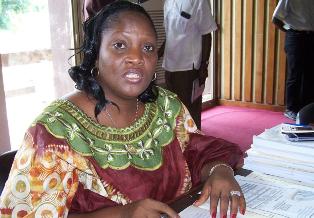Editorial: What’s Wrong with the Draft National Budget?
Unfolding developments with the ongoing hearing of the draft 2012/13 national budget at the Liberian Legislature which is being characterized by misplacement of allotments and lack of capacity by some ministries to defend their appropriations, among other lapses leave much to be desired. The obtaining lapses that characterized the national spending document create the need to critically analyze the ongoing process and raise some fundamental questions for our policymakers.
For instance, even before the current hearing process began, the President Pro-Tempore of the Liberian Senate had gone on record as describing the draft national budget as “bundles of papers with high figures, lacking explanations.” The Senate had accordingly threatened to delay the hearing process until the Finance Ministry could produce performance reports of the previous (2011/12) national budget.
It took no lesser personality than the Minister of Finance Amara Konneh, who visited the Capitol Building and held lunch with the lawmakers to soften the ground, which subsequently led to the commencement of the budget hearing process.
However, the apparent dismal performance in the hearing process came to the fore early last week when the Minister of Education Madam Etmonia Tarpeh, whose ministry has been allotted US$66m, could not detail to the lawmakers how she intends to expend the proposed allotment. The Joint Committee on Ways, Means and Finance through the intervention of Grand Bassa County Senator John Whitfield was constrained to suspend the budgetary hearing for the Education Ministry until the minister could get her acts together to defend the ministry’s allotments.
Next the committee discovered US$1m in the budgetary allotment for the Ministry of Internal Affairs, which Finance Minister Konneh has publicly acknowledged was misplaced because the money in question is actually intended for the National Investment Commission; not the Internal Affairs Ministry. We do not know how many other wrongly allotted appropriations may pass the lawmakers’ scrutiny without being detected! Only God knows. Worse still, the Deputy Minister of Health and Social Welfare Dr. Bernice Dahn was asked out of the hearing.
For God sake, where dose all of these lapses or inadequacies lead us with respect to preparing the proposed national budget before it reaches the Capitol Building. Could it be that the various ministries did not have input in the budget preparation process or maybe some figures might have been deliberately inserted just in case, if the lawmakers do not detect and eventually enact the budget into law, they can become free money?
It is disgusting and totally embarrassing that our public officials just sit in the corner and allot high figures to their respective ministries and agencies with no clear programs to affect the lives of our people. For instance, since the William V.S. Tubman, D. Twe Memorial and G.W. Gibson high schools were constructed in the 60s, no new public high schools have been constructed in central Monrovia despite increase in the population yet the ministry opts for budgetary increment each year.
[bsa_pro_ad_space id=1]
Even the health sector is also found wanting. Specifically, services at the J.F.K. Memorial Hospital, Redemption, T.B. Annex and other health institutions in and around the capitol need to be improved, and the Ministry of Health should lead that campaign through its allotment in the budget, but what is being observed at the ongoing hearing is that cabinet ministers are defending lump sum figures without detailed specifications or blueprints. This is wrong and seems to indicate that we are playing lip-service to development.
While we wholeheartedly welcome public hearing of the national budget, our policymakers should do more in explaining how they intend to spend the public money being requested for. We all know that despite previous budgetary allotments in the entire first term of this administration, the provision of running water, security and other basic services still remain a serious challenge in Monrovia and the rest of the country.
The national budget should be treated in the same manner like we expect a housewife to apply the disposable income to the benefit of every member of the household, which could yield a healthy family upkeep.




















